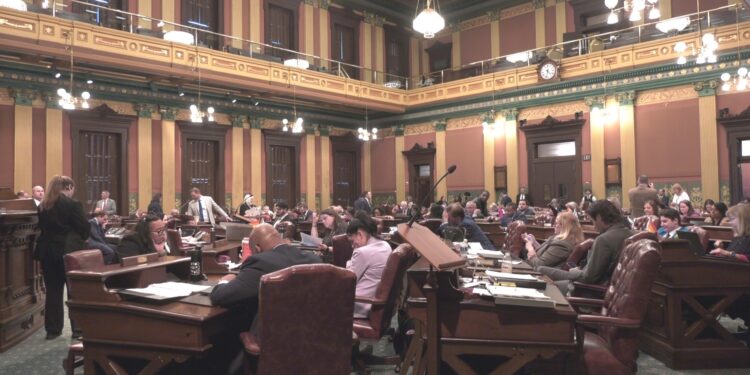LANSING, Mich. (WZMQ) – State lawmakers are busy with work on the budget for the next fiscal year, but some legislators have started to raise concerns over proposed budget cuts to the Office of the Auditor General (OAG).
The OAG is in charge of conducting post and performance audits of financial transactions and accounts linked to all branches and departments in the state. The first draft of the 2025 budget from Governor Whitmer proposed a 28% decrease in funding to the OAG.
In a letter to the legislature, the Auditor General explained that many grants and special revenue appropriations had been removed and replaced with a $100 place-holder, which would represent a nearly $9.3 million decrease from 2024.
In the executive budget, funding for 23 interdepartmental grants (idgs) and 13 appropriations from special revenue funds were removed and replaced with a $100 placeholder. this reflects a decrease of approximately $9.3 million from fy24. while the executive budget recommendation included a general fund increase of about $1 million, the net $8.3 million (28%) decrease would significantly impair the oversight we provide to you and the public. it would also result in many instances of conflict with existing state law. the reductions occurred after it was our understanding the legislative leadership supported a 5% increase in our overall budget.the constitution provides our office the exclusive right to perform financial and performance post audits of all branches, departments, and agencies.
exerpt from the Auditor General’s letter to the legislature
Republican lawmakers have been outspoken about their opposition to the cutbacks.
State Rep. Tom Kunse (R-Clare) said the auditor general has the job he does because he is the state’s trusted expert in conducting internal reviews of government agencies.
“When we have a question about finance, we call treasury. When we have a question about roads, we call transportation.” Kunse said. “If not the auditor general, who else would lawmakers reach out to when ensuring the accuracy of their audit requests?”
Representative Mike Harris (R-Waterford) said The auditor general and his team expertly review the workings of state agencies, flag problems, and get answers for Michiganders and their representatives in the Legislature.
“They regularly work with legislators from both sides of the aisle to spearhead these watchdog efforts,” said Harris. “Some partisans who don’t seem interested in holding the governor’s administration accountable have started attacking the auditor general for doing his job. Both parties should want government to work for the people of our state, but baseless attacks on nonpartisan auditing inhibits the bipartisan oversight Michiganders deserve.”
State Senator for the Western Upper Peninsula, Ed McBroom (R- Waucedah Township) is one of the lawmakers concerned about the cuts.
“They serve an incredibly important nonpartisan function and should be supported by all of my colleagues and the administration,” McBroom said. “Cutbacks on them would be devastating to the integrity and the accountability that our government desperately needs.”
Mcbroom says he worries the cuts are being made because of partisan issues. He explained that the office conducted investigations following the 2022 election after a republican lawmaker sent a letter of request. The communication between the lawmaker and the office raised concerns about the auditor general that McBroom said weren’t valid. He said it’s standard practice in government to have preliminary calls before the formal letter is sent, and shouldn’t be made out to be anything more than that.
The report that was issued following the investigation into the Bureau of Elections came with criticism from Democratic lawmakers who were worried about partisan interests influencing the OAG, despite the office receiving praise from the Secretary of State for its professionalism and accuracy durring investigations.
The OAG declined an interview to discuss any new progress in negotiating the cuts, but those opposed say that the changes would impair oversight and could jeopardize billions of dollars in federal funding.










